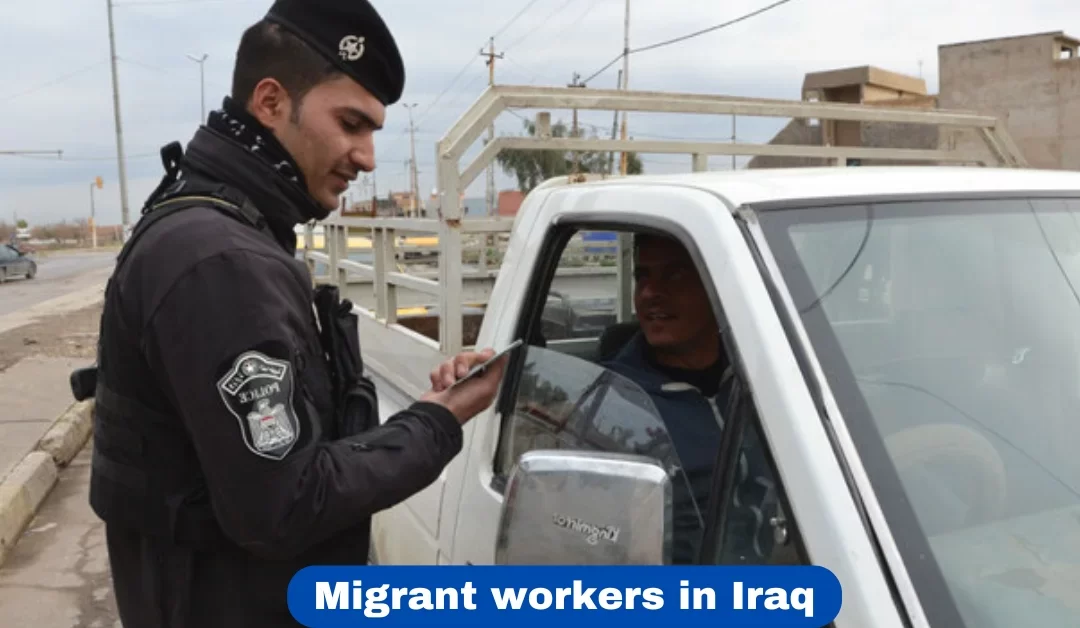The Struggles of Undocumented Workers in Iraq
Rami, a 27-year-old Syrian worker, spends long days working at a shawarma shop in Iraq. He fears being arrested or deported as the government cracks down on undocumented workers. His story is just one example of the many challenges foreign workers in Iraq face every day.
Why Foreign Workers Are Coming to Iraq
Iraq has become an unexpected destination for many workers from countries like Syria, Pakistan, and Bangladesh.
- Escaping hardships: Many come seeking a better life, escaping poverty or unstable conditions in their home countries.
- New opportunities in Iraq: With Iraq recovering from decades of conflict, jobs in the service industry and domestic work are available.
- Religious pilgrimages leading to work: Some workers originally came as pilgrims but stayed to find work. For example, 50,000 Pakistani pilgrims reportedly remained to work illegally.
Rami, who has lived in Iraq for seven years, fears deportation because returning to Syria would mean mandatory military service for him.
Challenges for Undocumented Workers in Iraq
Working without legal documents brings many risks and difficulties:
- Fear of arrest and deportation: Workers live in constant fear of being caught by authorities.
- Poor working conditions: Without legal protection, many endure long hours and low pay.
- Limited rights: Undocumented workers often lack access to healthcare, proper wages, or job security.
Ahmed, another undocumented worker from Syria, shares similar struggles. He moved to Iraq to work as a cook but says life is very hard for illegal workers, with no rights or protections.
Iraq’s Crackdown on Illegal Workers
The Iraqi government is taking strict steps to address the influx of undocumented workers.
New Employment Rules
- Companies can only employ up to 50% foreign workers, but the government plans to reduce this to 30%.
- Employers must register their foreign workers and pay a high registration fee—over $800 for a work permit.
- Workers from countries like Syria, Pakistan, and Bangladesh are being urged to regularize their status online.
Inspections and Penalties
Authorities are conducting inspections to catch undocumented workers. Employers are also at risk of legal action if they hire illegal workers. Some business owners admit to hiding their undocumented employees during government inspections.
Why Iraq is Limiting Foreign Workers
The government’s efforts to reduce undocumented workers are part of a larger plan to prioritize Iraqi citizens in the job market.
- Unemployment among Iraqis: Iraq has 1.6 million unemployed citizens, and the government wants to provide more jobs for them.
- Focusing on skilled labor: Officials want foreign workers only for jobs requiring skills not available locally.
- Diversifying the economy: Iraq aims to move away from its dependence on the oil sector and develop other industries like services and tourism.
The Labor Ministry also recognizes a cultural shift. Many Iraqis are unwilling to take up certain jobs, such as domestic work.
Domestic Work A Growing Demand
While the government is limiting foreign workers in most industries, domestic work remains an exception.
- High demand for domestic workers: Iraqi families are increasingly hiring foreign domestic workers, especially from countries like Niger, Ghana, and Ethiopia.
- Rising salaries: With improved living standards in Iraq, more families can afford domestic help. A domestic worker typically earns around $230 per month.
An agency bringing in domestic workers says demand has doubled since 2021, with many Iraqi households adopting this trend from wealthier Gulf countries.
The Human Rights Concerns
Human Rights Watch has criticized Iraq’s crackdown, describing it as harsh and unfair, particularly for Syrian workers.
- Arbitrary arrests: The government has been accused of targeting even those with valid documents during workplace and home raids.
- Deportations: Many workers, despite their contributions to the economy, are deported under the new rules.
What the Future Holds for Migrant Workers in Iraq
Rami and Ahmed are waiting to see if regularizing their work status will be safe and beneficial. Rami says, “I want to get legal papers, but I’m scared to apply right now. I’ll wait to see what others do first.”
While Iraq is taking steps to protect its citizens’ jobs, the government also needs to consider fair treatment for migrant workers who contribute significantly to the economy. Striking a balance between regulation and compassion will be key to solving this complex issue.
By addressing undocumented workers in Iraq, enforcing fair employment laws, and ensuring better rights for all workers, the country can set an example for managing labor migration effectively.































